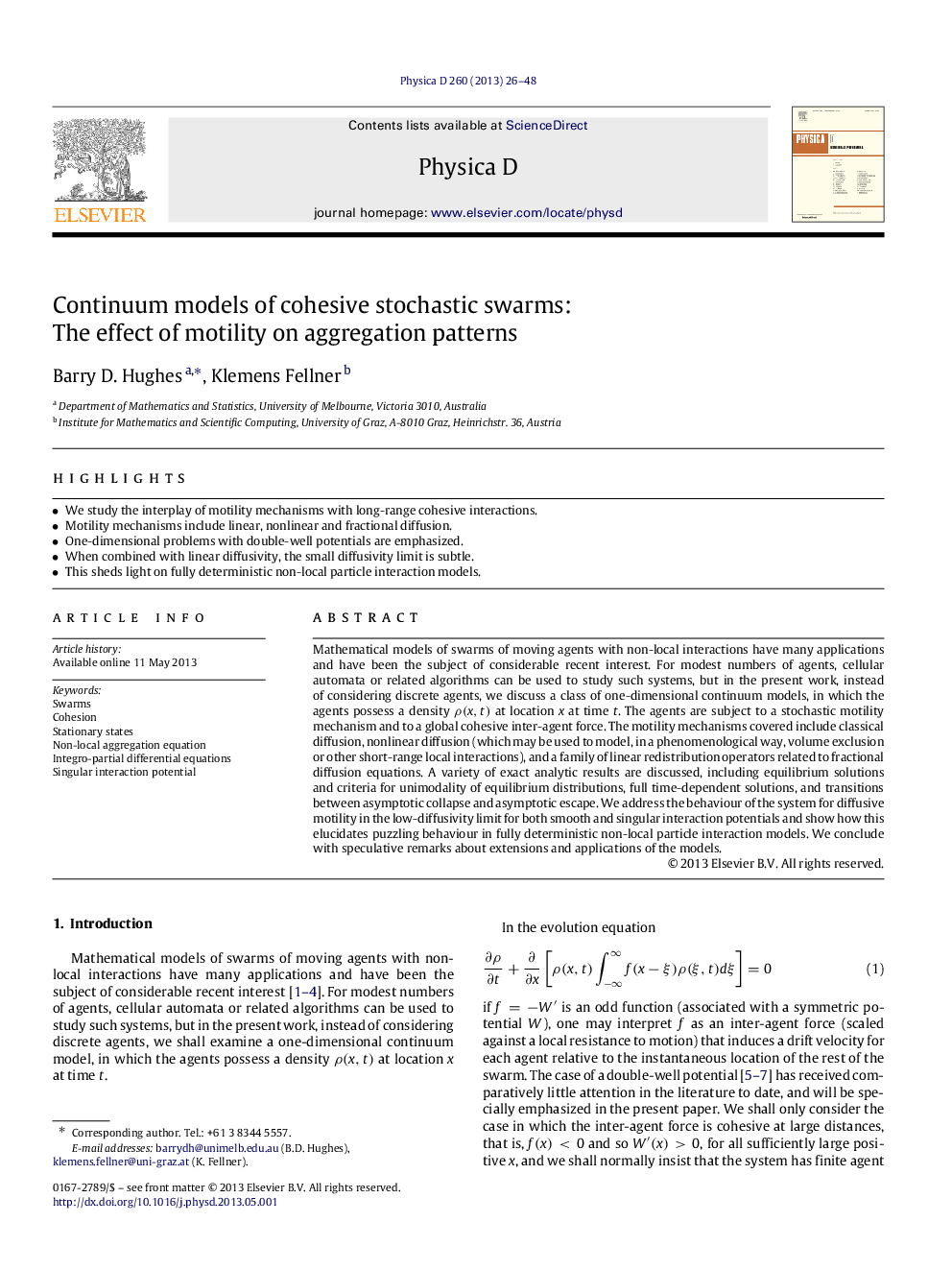| Article ID | Journal | Published Year | Pages | File Type |
|---|---|---|---|---|
| 8256514 | Physica D: Nonlinear Phenomena | 2013 | 23 Pages |
Abstract
Mathematical models of swarms of moving agents with non-local interactions have many applications and have been the subject of considerable recent interest. For modest numbers of agents, cellular automata or related algorithms can be used to study such systems, but in the present work, instead of considering discrete agents, we discuss a class of one-dimensional continuum models, in which the agents possess a density Ï(x,t) at location x at time t. The agents are subject to a stochastic motility mechanism and to a global cohesive inter-agent force. The motility mechanisms covered include classical diffusion, nonlinear diffusion (which may be used to model, in a phenomenological way, volume exclusion or other short-range local interactions), and a family of linear redistribution operators related to fractional diffusion equations. A variety of exact analytic results are discussed, including equilibrium solutions and criteria for unimodality of equilibrium distributions, full time-dependent solutions, and transitions between asymptotic collapse and asymptotic escape. We address the behaviour of the system for diffusive motility in the low-diffusivity limit for both smooth and singular interaction potentials and show how this elucidates puzzling behaviour in fully deterministic non-local particle interaction models. We conclude with speculative remarks about extensions and applications of the models.
Related Topics
Physical Sciences and Engineering
Mathematics
Applied Mathematics
Authors
Barry D. Hughes, Klemens Fellner,
